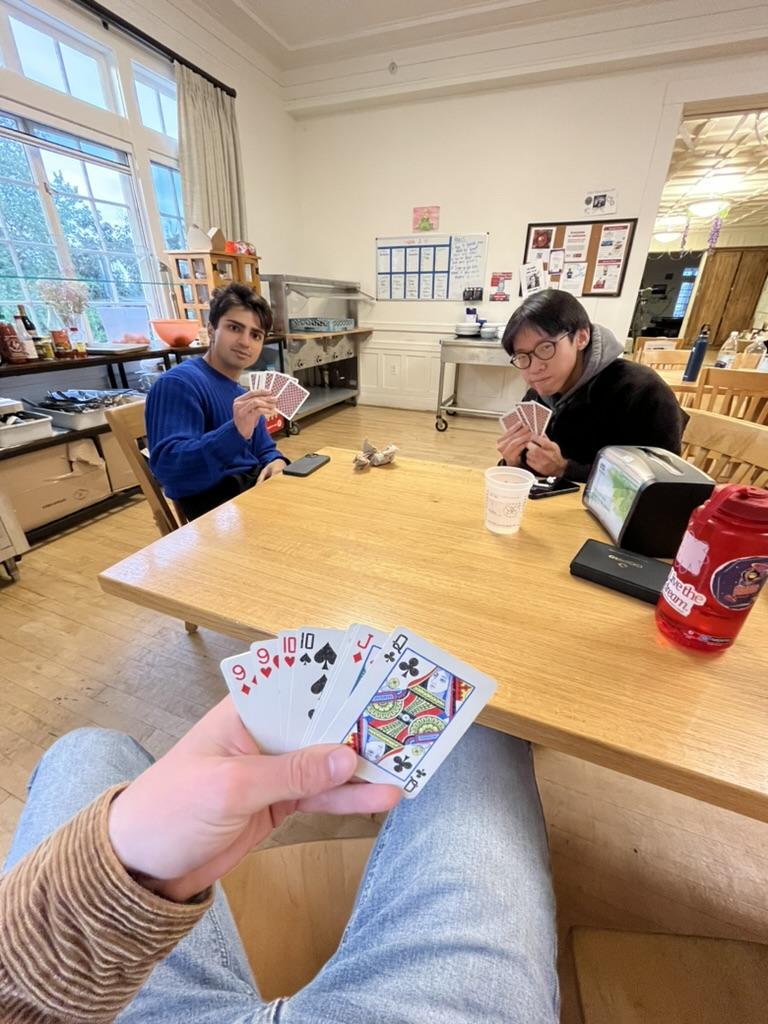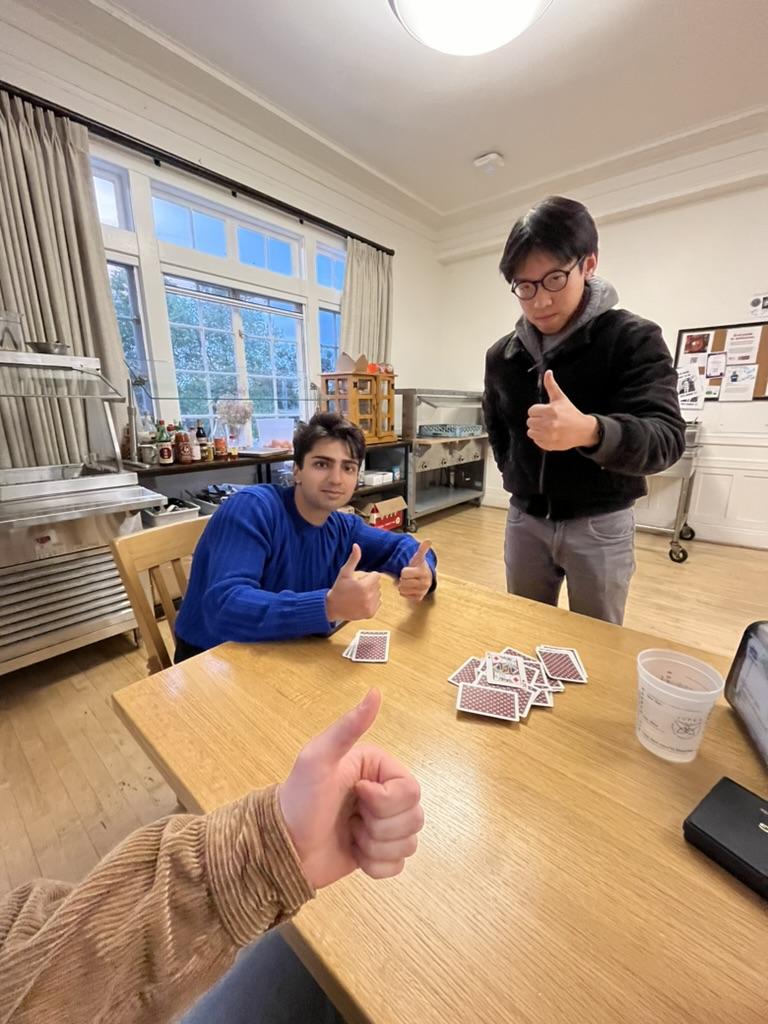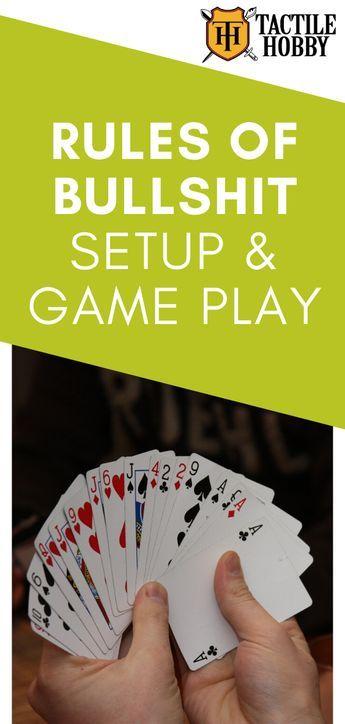BS (Bullsh*t aka Doubt it aka Cheat) is a party game using a deck of 52 playing cards. The creator is unknown, but most people know it from an early-ish age as it’s common for ages 8+ to play it. It’s a fairly simple game that anyone can play so the people who usually play is are at summer camp, bored in a house somewhere, or something like that. It’s best played with 3-6 players in my experience.
“How does the game compare and contrast with your team’s concept?”
Our game utilizes three main mechanics in its current state: slapping, get to know you questions, and bluffing. Obviously the shared mechanic between BS and our game (name TBD) is the bluffing aspect. With BS, you calculate how much you think someone is bluffing probabilistically based on how many total cards they have, how many of the certain card they’re supposed to play you have in your hand (you have four 4s and you know they have to be bluffing on 4s), how many cards you think others have, and some more intrinsic things like how many times they’ve bluffed in the past or if they have any bluff give aways. TLDR is that you’re calculating a bluff based off of things in the game. Our game relies more on your knowledge of other players and if they’re already answered certain questions on a card, rather than certain cards in your hand like BS. In BS there is no slapping and there isn’t a get-to-know-you aspect other than knowing how and how likely people are to bluff. With BS, you’re trying to get rid of your cards, whereas with our game, you’re trying to get all the cards (for now at least).
I started playing this game with 2 people (myself and someone else) and it wasn’t fun because we knew exactly how many other cards the other person had. One other person came to join after the first few minutes which made the game a lot more fun because there was more of an unknown when calling someone’s bluff. I would say that if you have 2 people, the rules should be changed such that person A gets 1/3 of the deck, person B gets 1/3 of the deck, and 1/3 of the deck is out of play. This would help with the unknown aspect that makes the game more fun with more people but make it playable for 2 people. I also didn’t like how towards the end of the round, you end up with a bunch of one suit, like four 3s, four 5s, and four jacks… it makes the game feel different from the beginning, but easier to call someone’s bluff and a little less enjoyable because there’s less risk. However, this change does make you have to be more clever and forces you to bluff since you are less likely to have some of the intermediary cards if you have a bunch of sets of four. Poker is the only other card game I can think of that allows for direct bluffing / calling of bluffs, but theres also an economy in that game and it relies much more heavily on played cards and guessing.
One dynamic I noted is how people bluff. Depending on who you’re playing with you have to adapt your bluff detection skills to who you’re playing with. When I played yesterday, someone was really clever in how they bluffed which meant I was caught off guard because I had never seen those bluffs before. If you’re playing with younger people, I’m guessing they wouldn’t be as good at bluffing and they game would have an entirely different feel. One mechanic that I really like is the popcorn rule, where players must announce when they have bluffed as soon as the next person plays. This makes it more satisfying to bluff because you admit it and also allows for other players to pick up on any patterns you tend to bluff on. With BS, the game is quite binary when it comes to bluffing… you either put the wrong cards down or you put the correct cards down… after the bluff is over, there isn’t much more to discuss. With our game, we critique this with our “get to know you” aspect. Since you are answering uncomfortable questions, there might be more incentive to lie, but there is also a huge possibility for discussion afterwards when you’re done playing the game. I can definitely imagine players from our game continuing to talk about prompts/answers that came up during play, even after the game. Whereas a critique of BS, is that you’re not going to be thinking about the game much other than when you are playing it or want to play it.
Evidence below shows us all thinking hard about what to play and whether we are bluffing or not… ¯\_(ツ)_/¯

Evidence of me, despite clever bluffs by the opposition, absolutely destroying the competition by bluffing my four kings as a one 10 and two 7s and one king to clinch the dub (see: no cards in my hand).





